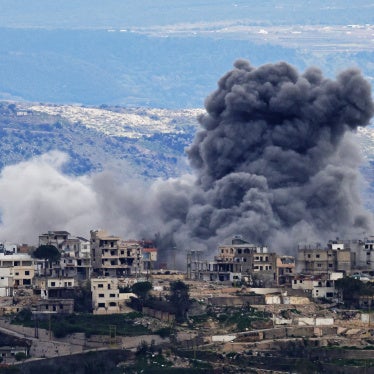THE biannual International AIDS Conference began yesterday in Vienna, bringing together tens of thousands of HIV experts, activists and officials from around the world. The theme of this year's conference is human rights - a recognition that only by protecting and advancing human rights can we effectively end HIV transmission and ensure access to AIDS treatment.
The Cambodian government has been praised as one of the world's few HIV success stories for reducing the spread of HIV among adults. But while the global spotlight is on Vienna, Cambodia's human rights abuses and inaction in stemming HIV among some of its most vulnerable, impoverished and voiceless citizens - such as sex workers and people who use drugs - is undermining that success.
Officially, the Cambodian government promotes human rights in its response to HIV. In practice, the picture is much different.
For example, according to the government's strategic plan for HIV and drug use, HIV prevention efforts must "ensure that human rights are upheld."
People who use drugs in Cambodia - particularly those who inject - are at heightened risk of HIV infection; at least one in four people who inject drugs are estimated to be HIV-positive. However, instead of addressing either the issue of drug use or HIV with treatments that have been proved effective, the mainstay of the government's strategy is police sweeps and detention.
Drug users interviewed by Human Rights Watch describe horrific abuses in detention for so-called "treatment". Former detainees - including children - tell us that they have been shocked with electric batons, whipped with twisted electrical wire, regularly beaten, and chained standing in the sun. Some tell us of being raped by staff or coerced into donating their blood.
Sex workers arrested in arbitrary police sweeps and sent to so-called "rehabilitation" centres tell of equally horrific abuses. In a report to be released tomorrow, Human Rights Watch documents rape, beatings, and the ill treatment of sex workers by police during arrest and by guards at a centre near Phnom Penh, Prey Speu.
A female sex worker detained there told of a beating after she tried to escape: "Five guards beat me up. When I used my arms to shield my face and head from their blows, they beat my arms. The guard threatened to slit our throats if we tried to escape a second time, and said our bodies would be cremated there."
Sex workers, drug users, homeless people, and street children are picked up in street sweeps and sent to these centres without any legal process. Our research found that when HIV-positive people are detained, they often have to stop taking their medicine. Interrupting treatment can cause HIV to develop resistance to treatment - endangering their lives or requiring costly second - or third-line therapies. We talked to one homeless, HIV-positive woman who was detained by Phnom Penh police last year. When she asked a police officer to return her confiscated HIV medicine, he replied: "You complain a lot! Jump into the truck!" She was subsequently detained - illegally - for days without medications at Prey Speu.
Ironically, the government has cited HIV prevention as one rationale for police roundups of sex workers, particularly before large public festivals in Phnom Penh. Prior to last year's Water Festival, for example, the deputy governor of Daun Penh district justified the detention of sex workers by saying: "We don't want to see the boat racers bringing disease such as HIV/AIDS back to their wives."
The government - and, until recently, UN agencies - have claimed that people remain in Prey Speu voluntarily. However sex workers released just last month told Human Rights Watch how guards watched them at all times, beat and threatened those who tried to leave, and even "followed us to the toilet so we didn't escape."
Following a Human Rights Watch report released in January documenting abuses of drug users in government centres, some UN agencies spoke critically about drug detention centres, with WHO and UNAIDS joining Human Rights Watch in calling for them to be closed. From a public health point of view, this makes sense - in addition to being ineffective at treating drug dependency, detention centres can act as incubators of infectious diseases.
Protecting the rights of people living with and vulnerable to HIV is just one more reason why Cambodia needs to permanently close centres used to unlawfully detain sex workers, drug users and other vulnerable populations.
Instead government agencies should solicit input from the groups they claim to be serving to design community-based programmes - with peer educators and counselors to work with marginalised groups on a respectful, voluntary basis.
The slogan of the Vienna conference is "Rights Here, Right Now", but if all that comes of the conference is rhetoric on human rights, an opportunity to end the AIDS epidemic will be lost. While the world celebrates attention to human rights and HIV in Vienna, concrete action is urgently needed in Cambodia.
Elaine Pearson is acting Asia director at Human Rights Watch.









